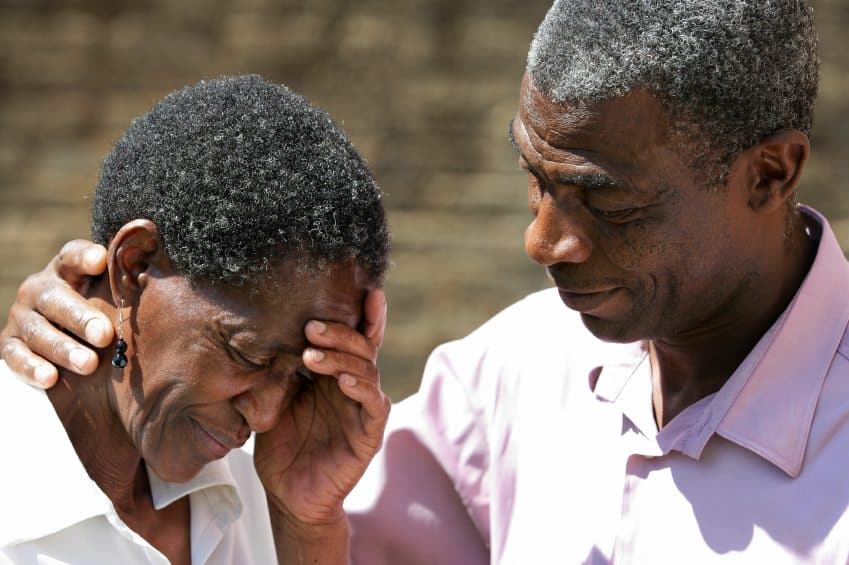
The 3 C’s of Grief Counseling Can Help With Grief and Loss
The 3 C’s of Grief Counseling
Navigating the Storm Understanding the 3 C’s of Grief
Grief is a universal experience that touches everyone at some point in their lives. Whether it’s the loss of a loved one, a spouse, or a family member, grief can feel like an unending storm. The waves of emotions can be overwhelming, leaving you feeling lost and alone. This blog post aims to provide guidance through the storm by exploring the 3 C’s of grief counseling—Coping, Context, and Complication. By understanding these concepts, you’ll find practical advice to help you manage your grief, gain insight into the grieving process, and discover the importance of seeking professional help when needed.
Understanding Grief
Grief, a complex emotional reaction to loss, affects individuals in varying ways. It manifests through various emotions such as sorrow, rage, remorse, and occasionally, a sense of release. These feelings may fluctuate unexpectedly, making the journey to stability challenging. The grieving process often shows in physical forms like exhaustion, appetite fluctuations, and sleep disruptions. Grasping the psychological and emotional layers of grief is crucial during this difficult phase.
Grief doesn’t follow a linear path. Instead, it’s a cyclical process where you may revisit certain emotions multiple times. The well-known stages of grief—denial, anger, bargaining, depression, and acceptance—provide a framework, but each person’s experience is unique. Recognizing that your grief might not fit neatly into these stages can help you be more gentle with yourself as you move through it.
It’s also important to acknowledge that grief is not something to “get over” but rather to integrate into your life. This means finding a way to live with the loss while still moving forward. The goal is to reach a point where memories bring more comfort than pain, although this can take considerable time and effort.
The 3 C’s of Grief Counseling
In the realm of grief counseling, the 3 C’s—Coping, Context, and Complication—serve as guiding principles to help individuals manage their grief. Understanding these can provide a roadmap for navigating the tumultuous emotions and challenges associated with loss.
Coping
Coping involves finding strategies to manage the emotional pain of grief. This includes self-care, seeking support, and engaging in activities that bring joy and meaning. Effective coping strategies can help reduce the intensity of grief and improve overall well-being.
Context
Contextualizing the loss involves understanding how the specific circumstances of the loss affect the grieving process. Factors such as the nature of the relationship, the circumstances of the death, and cultural or religious beliefs play a significant role in shaping your grief experience.
Complication
Complications in grief refer to instances where the grieving process becomes more complex, such as in cases of prolonged grief disorder. Identifying these complications early can help in seeking appropriate professional support to address them.
Coping Strategies
Coping with grief is a deeply personal process, but there are practical strategies that can help you manage the pain and begin to heal. Here are some tips to guide you through:
Self-Care
Taking care of your physical and emotional health is crucial during this time. Simple actions like eating well, getting enough rest, and staying hydrated can make a significant difference. Exercise, even something as gentle as a daily walk, can also help improve your mood and reduce stress.
Seeking Support
You don’t have to go through this alone. Reach out to friends and family who can offer a listening ear and a shoulder to lean on. Support groups, both in-person and online, can provide a sense of community and understanding from others who are experiencing similar losses.
Engaging in Positive Activities
Finding activities that bring you joy and fulfillment can provide a much-needed respite from grief. This might include hobbies, spending time in nature, or volunteering. Engaging in these activities can help you find moments of peace and happiness amidst the pain.
Contextualizing the Loss
Understanding the context of your loss is an essential aspect of the grieving process. Here’s how different factors can influence how you grieve:
Nature of the Relationship
The closeness and nature of your relationship with the deceased significantly impact your grief. Losing a spouse may involve a profound sense of losing part of your identity, while the loss of a distant relative might evoke different emotions.
Circumstances of the Death
The way the loss occurred can also shape your grieving experience. Sudden or traumatic deaths can leave you feeling shocked and unprepared, while an anticipated loss after a long illness might bring a complex mix of relief and sorrow.
Cultural and Religious Beliefs
Your cultural and religious background can guide how you interpret and cope with loss. Rituals, ceremonies, and beliefs about the afterlife can provide comfort and a sense of meaning during this difficult time.
Complications in Grief
While grief is a natural response to loss, it can sometimes become complicated, leading to prolonged or intense suffering. Understanding these complications can help you recognize when it’s time to seek additional support.
Prolonged Grief Disorder
Prolonged grief disorder, also known as complicated grief, occurs when the symptoms of grief do not diminish over time and continue to interfere with daily life. This condition may require specialized treatment to help individuals process their grief and move forward.
Risk Factors
Certain factors can increase the risk of developing complications in grief. These include a history of mental health issues, lack of social support, and previous traumatic experiences. Recognizing these risk factors can help you take proactive steps to address them.
Seeking Help
If you find that your grief is overwhelming and persistent, it’s essential to seek professional help. Therapists and counselors specializing in grief can provide the tools and support needed to work through complicated emotions and find a path to healing.
Seeking Professional Help
Grief counseling can be a valuable resource for those struggling with loss. Here are some benefits of seeking professional support:
Emotional Support
Grief counselors offer a safe space to express your feelings and work through your emotions. They can provide validation and understanding, helping you feel less alone in your grief.
Practical Tools
Therapists can offer practical tools and techniques to help you manage your grief. This might include mindfulness exercises, journaling prompts, and coping strategies tailored to your specific needs.
Long-Term Healing
Professional support can facilitate long-term healing by addressing underlying issues and helping you develop healthy ways to cope with loss. Grief counseling can empower you to integrate your loss into your life and find a new sense of normalcy.
Conclusion
Navigating the storm of grief is undoubtedly challenging, but understanding the 3 C’s of grief counseling—Coping, Context, and Complication—can provide valuable guidance. By implementing effective coping strategies, contextualizing your loss, and recognizing potential complications, you can find a path to healing. Remember, seeking professional help is a courageous step towards managing your grief and moving forward.
Grief is a deeply personal experience, but you don’t have to face it alone. If you’re struggling, consider reaching out to a grief counselor who can offer the support and tools you need. There is hope, and there is help. You can find peace amidst the pain and discover a way to honor your loved one while continuing to live a fulfilling life.
If you need grief counseling to process grief and loss, get in touch.
Going Through a Challenge in Your Life Right Now?





